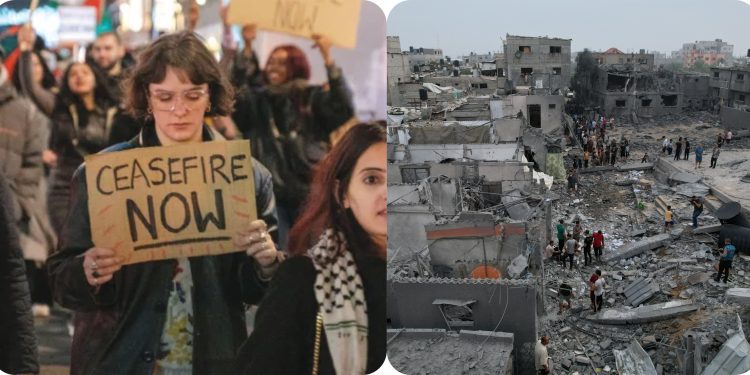There is a glimmer of hope for Gaza, as a four-day ceasefire between Israel and Hamas commenced today at 7 a.m. local time, aiming to bring relief to the war-torn region and facilitate crucial humanitarian efforts.
A significant aspect of the ceasefire involves the release of 13 Israeli captives at 4 p.m. local time (14:00 GMT) on the first day. The Red Cross is set to play a crucial role in escorting the released captives to the Rafah border crossing, where they will be handed over to the Israeli military for identification, according to Al Jazeera.
The ceasefire also includes the release of 39 out of 150 Palestinian prisoners on the initial day, forming part of a larger-scale prisoner swap. Simultaneously, 200 trucks laden with humanitarian aid are expected to enter Gaza from Egypt, providing essential support to the beleaguered population.
The Israel-Hamas conflict, persisting for seven weeks, has resulted in significant casualties and exacerbated the fragile humanitarian situation in Gaza. The conflict began when Hamas fighters breached the border fence into southern Israel on October 7, resulting in casualties and the seizure of approximately 240 hostages, as per Israeli tallies.
Negotiations for the ceasefire, facilitated by Egypt and other nations, gained momentum under intense global pressure for an end to hostilities. Despite initially defending Israeli bombardments in Gaza, UK Prime Minister Rishi Sunak was among the first world leaders to laud the ceasefire. He expressed gratitude on [X], thanking Qatar, Egypt, and others for their intensive diplomacy.
Sunak underscored the critical nature of the humanitarian pause, describing it as instrumental in ending the ordeal of hostages held by Hamas and facilitating life-saving aid delivery to Gaza.
According to Israeli authorities, the continuation of the ceasefire beyond the initial four days depends on Hamas’s commitment to releasing hostages at a rate of at least 10 per day. A Palestinian source informed Reuters that the total number of released hostages could potentially reach 100.
The toll of the conflict is stark, with Israel reporting 14,000 Gazan casualties, including approximately 40% children, according to Palestinian health authorities. While the ceasefire offers a temporary reprieve, the path to a lasting resolution remains uncertain.



